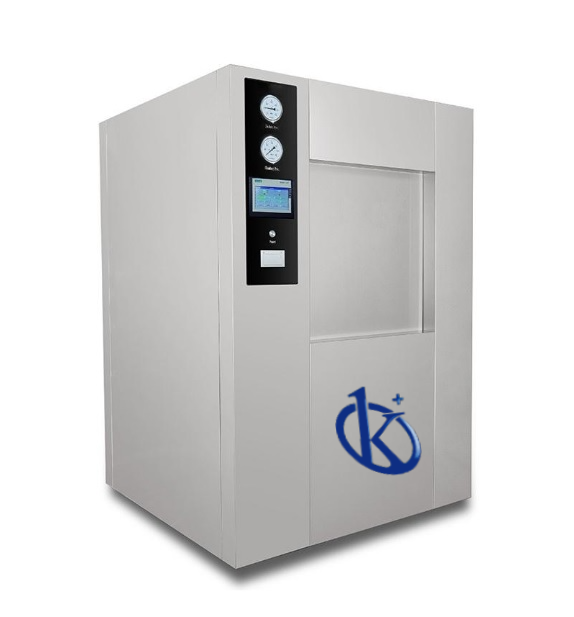Autoclaves are remarkably versatile laboratory instruments, designed to sterilize a wide range of materials. They are used in a variety of fields, including medicine, microbiology, podiatry, and tattooing. Autoclaves can be game-changers when it comes to sterilizing equipment and supplies. They simplify the sterilization process by applying heat and pressure, effectively eliminating unwanted microorganisms.
Tests have shown that autoclaves do an outstanding job sterilizing all sorts of items, from test tubes to protective garments. This essential device has secured a spot in any environment that requires top-notch sterilization. One could consider autoclaves as the gold standard in sterilization, and rightfully so.
If you’re seeking a blend of innovation and quality, you’ve come to the right place. At https://kalstein.net/en/category-product/laboratory-line/autoclaves/ we offer you the luxury to explore our exclusive catalog of laboratory equipment. We manufacture each piece of equipment with a level of excellence. Our intuitive and agile online shopping channels are designed for your convenience, ensuring the friendliest prices. Don’t hesitate any longer, we bring science to life, it’s time to become part of our community. https://kalstein.net/en/
Features of Autoclaves
Autoclaves come with several notable features. Firstly, they are incredibly durable due to their robust design and high-quality components. This means they can withstand continuous use without showing wear and tear.
Furthermore, they are extremely energy-efficient. Although heating water to high temperatures requires a significant amount of energy, autoclaves can do so efficiently, saving on long-term energy expenses. Last, but not least, autoclaves are user-friendly. With easy-to-understand controls and an intuitive design, the autoclave is a device that offers ease of use without compromising effectiveness.
Why Do Autoclaves Cost This Much?
When it comes to autoclaves, one could wonder why their cost is high. The price of autoclaves is justified by several factors – the quality of the materials used, durability, energy efficiency, and the precision with which they accomplish their main task: sterilization. After all, you don’t want to risk having an autoclave that doesn’t sterilize properly, especially when working in a laboratory environment where contamination can have severe consequences.
Compare Autoclaves to Similar Products
It’s important to compare autoclaves to similar alternatives available on the market. Several manufacturers compete in this field, but Kalstein autoclaves stand out for their durability, efficiency, and ease of use. While companies like Steris, Tuttnauer, and Priorclave offer sterilization solutions, none can match the price-performance ratio offered by Kalstein.
Furthermore, Kalstein’s customer service is superior to its competitors. Though other brands also offer reliable autoclaves, Kalstein customers can expect excellent after-sales service, ensuring they will enjoy their autoclave for a long time.
Pros and Cons of Autoclaves
|
Pros |
Cons |
|
Highly efficient sterilization |
High initial cost |
|
User-friendliness |
Requires regular maintenance |
|
Durability |
Energy consumption |
|
Energy efficiency |
Requires training for correct use |
|
Robust and resilient |
Unsuitable for certain materials |
|
Outstanding customer service |
Size might be an issue for small spaces |
|
High resale value |
|
|
Versatility in applications |
Benefits of These Autoclaves
Aside from their main functionality of efficiently sterilizing laboratory equipment, autoclaves offer a variety of benefits. They are easy to operate, come with adjustable sterilization cycles, and can sterilize a vast range of materials.
Moreover, most autoclaves have visual and auditory indicators that alert the user when the sterilization cycle has been successfully completed or if there is an issue. This is an important feature in lab environments where time is crucial.
Other Advantages of These Autoclaves
Besides already mentioned advantages, autoclaves are also beneficial from an environmental perspective. By destroying potentially harmful materials, they prevent these materials from entering the environment, thus minimizing environmental impact.
Additionally, since autoclaves reduce the need for costlier and more time-consuming sterilization methods, they also help save time and resources, which can greatly benefit any lab or medical facility.
Learn About Reviews on Autoclaves
What stands out in user reviews of autoclaves is the high degree of satisfaction with these devices. Laboratory and medical professionals praise these devices for their reliability, durability, and sterilization effectiveness.
Ease of use and the capability to adapt to different types of materials are also highly valued features, making autoclaves an excellent choice for any environment that requires high-grade sterilization.
Frequently Asked Questions
Are autoclaves hard to operate?
No, most autoclaves are designed for ease of use and come with clear, detailed instructions.
How long does sterilization take?
It depends on the autoclave model, the type of material to be sterilized, and the machine’s load. But generally, sterilization cycles last between 15 to 30 minutes.
Are autoclaves safe?
Yes, autoclaves are designed with numerous safety features to protect both the user and the environment.
What type of materials can be sterilized with an autoclave?
Autoclaves are versatile and can sterilize a wide range of materials, including glass, metal, rubber, and plastic.
Do I need any form of training to operate an autoclave?
Although autoclaves are easy to use, it’s preferable to receive some form of training to ensure they are used correctly and safely.
How should I maintain my autoclave?
You should follow the manufacturer’s instructions for autoclave maintenance. This could include regularly cleaning the device and inspecting seals and valves.
Conclusions about These Autoclaves
In summary, autoclaves are essential equipment for any environment requiring high-level sterilization. They offer undisputed advantages such as effectiveness, durability, and ease of use. The initial investment may seem high, but the long-term value of an efficient autoclave well justifies the investment.
Now that you’ve learned more about these wonderful devices, it’s your turn to take a step towards a safer, more efficient laboratory environment.


